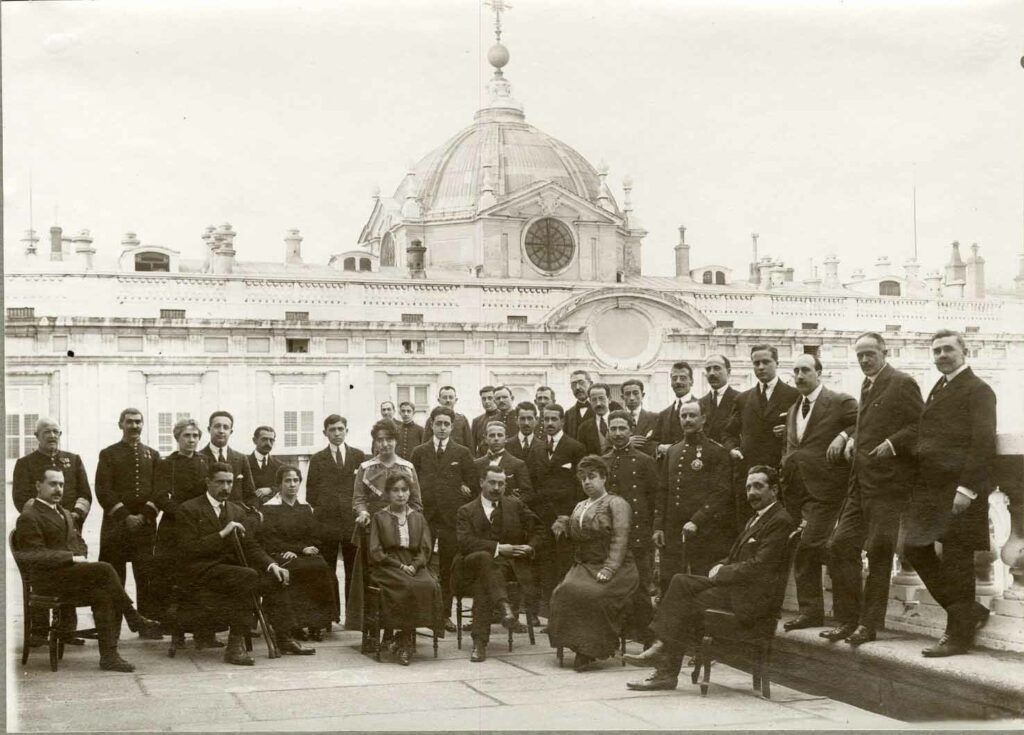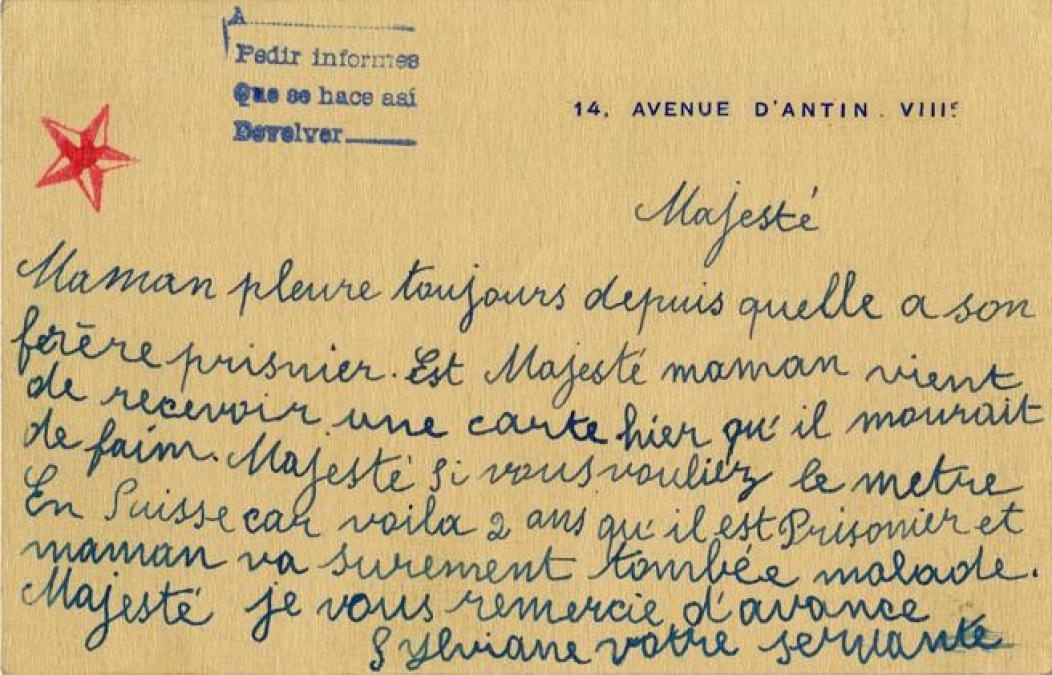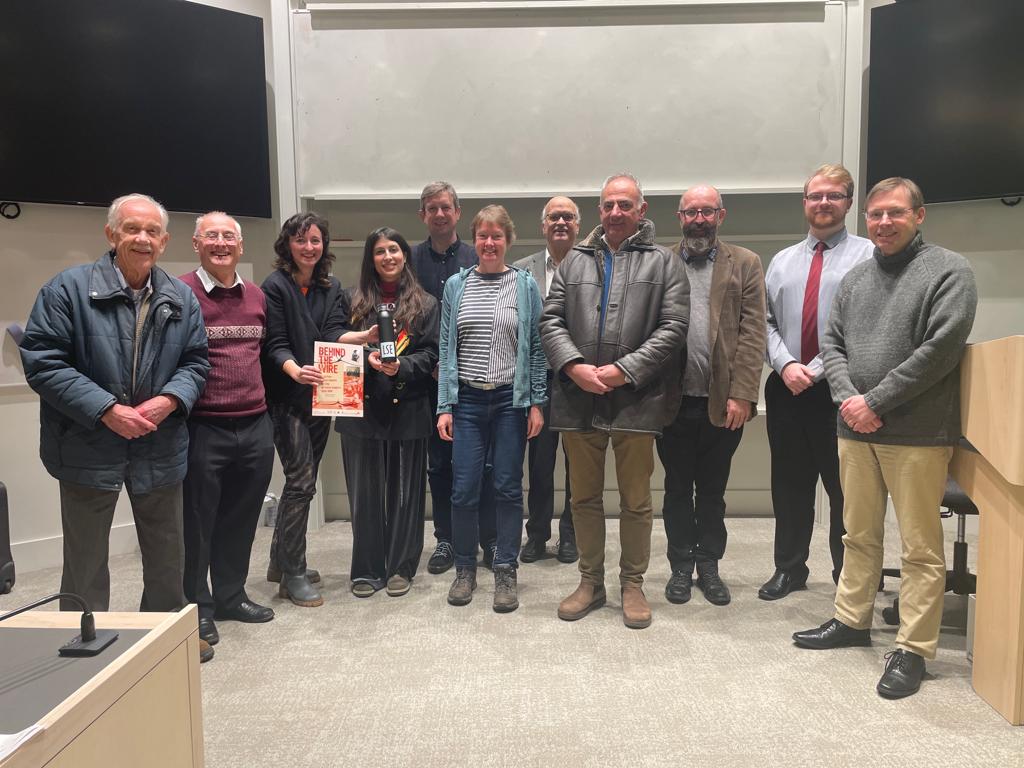Germans in Cameroon and neutral internment in Spain during the First World War
プロジェクト代表者:
Mahon Murphy(京都大学大学院法学研究科准教授)
連携研究員・共同研究員:
・Marina Pérez de Arcos (London School of Economics and Political Science. Head of Politics at Forward College Europe, PhD Politics and International Relations (University of Oxford))
プロジェクト紹介
The Institute for the Future of Human Society was generous to fund the initial output for my research project: Germans in Cameroon and Neutral Internment in Spain during the First World War. This is a project I have been working on in collaboration with Marina Pérez de Arcos at the London School of Economics and Political Science, UK. The key objective of this project is to investigate humanitarian intervention during wartime. We do this by taking the example of the ‘European War Office’ in Spain and its connection to Germany’s overseas colony of Cameroon during the First World War. Our research firmly connects to one of the target themes of the Institute of the Future of Human Society: Community and Connection. The experience of those fighting in the First World War in West Africa also takes into account issues relating to the social status of those settled in Germany’s colonies and how they are affected by war.
As we are both historians our research is based on archival material to connect the history of internment and prisoner of war camps to broader political and cultural histories of Empire. Dr Pérez de Arcos was one of the first researchers to highlight the value of the archives of the European War in Spain as providing a new narrative in the history of humanitarian intervention in the First World War. For my part, while working on a separate project at Kyoto University I discovered a lot of material relating to Germany’s colonies in Africa and Asia, much of which was bought by the law and economics libraries in the inter-war period. Through combining these valuable sources and material from German and Spanish archives we are able to reveal a hitherto hidden history of humanitarian action and its entanglement with imperial collapse in Africa. I hope that this project will also help to inform readers about the wealth of useful research material that Kyoto University’s libraries hold on the creation of European empires and encourage them to come and investigate our holdings for themselves.

Spain was a neutral power during the First World War and the ‘European War Office’ was opened by King Alfonso XIII in response to letters he received from around the globe inquiring about the location, treatment and repatriation of loved ones both soldiers and civilians. Much like the more famous International Committee of the Red Cross, the European War Office was a vital humanitarian organization during the First World War. However, despite its importance it has received almost no attention in debates on humanitarian crisis management during war.

Our project explains the functions of the European War Office by focusing on Germany’s colony of Cameroon. In 1915, during the fighting against French and British forces, German soldiers fled south across the border to Spain’s colony of Spanish Guinea (Equatorial Guinea). From here the German combatants and a number of their African soldiers were sent to Spain where they were interned for the rest of the war. The war and forced migration to Spain had important social impacts. Those who moved to Spain had to rebuild their communities and connections in a new land, while those left behind (African soldiers who fought for Germany) would have to renegotiate their positions under a new Imperial power either France or Britain depending on what part of Cameroon they lived in.
The European War Office operated as a location service for connecting displaced person in war with their families. In the pre-internet age, the office helped to create, or re-create, the ‘virtual-community’ that existed between Germans living in the colonies with those in Germany. The war and the allied blockade cut communications between Germany and its colonies, while internment further restricted transfers of information. Through the European War Office our project explains how humanitarian organizations can operate as bridges between communities and provide hope and comfort to people desperately searching for loved ones who were caught up in the chaos of war.
We investigate the knowledge transfers that took place during the war to analyse how families disrupted by the conflict enabled to gather information on the whereabouts of loved ones. During the war material for publication on the war the colonies could only be sought in occupied German territory, that is Germany’s overseas colonies of Togo, Cameroon, German South-West Africa, German East Africa, Tsingtao, New Guinea, Samoa and the Pacific islands under German protectorates. The Deutsche Kolonialgesellschaft (the German Colonial Society) through its Kolonialzeitung and the Frauenbund’s Kolonie und Heimat were the natural leaders for information on the war in the colonies, providing accounts gathered from international press and the reports from repatriated civilian internees, missionaries or diplomats. Due to Cameroon’s defeat in 1916 many first accounts could be serialized and were already published before the war in Europe came to an end: mainly accounts of repatriated missionaries and women. Such as German Red Cross Nurse Greta Kuhnhold’s account of her time in Kamerun, the section detailing her repatriation via Fernando Po, Spain and Italy was published in June 1916 in the Deutsch Kolonialzeitung.
As Marina shows Kolonie und Heimat was a key organ for gaining information on the potential whereabouts of loved ones. It also helped to inform the German population about the trials of those interned or returned from the colonies with regular columns on the daily lives of those in Allied occupied Samoa, fighting in East Africa or the accounts of returnees such as the files held in the German archives of those describing their repatriation from Cameroon via England to Germany.

Our project is aimed at two outcomes:
The first outcome was a paper at the international conference Here Marina and I presented our work to a panel of international experts on internment studies at the conference Beyond the Barbed Wire: Wartime Internment in the Global History of Knowledge Transfer 1914-1945 at the London School of Economics and Political Science, London, UK in January 2023.

Our second objective is currently under Second: We will prepare and publish a research article for a special issue of the Journal Immigrants and Minorities: Historical Studies in Ethnicity, Migration and Diaspora. In preparation for this article I hope to invite Marina to Kyoto so she can present to us in person on her fascinating research and so that we might thoroughly prepare our publication.
